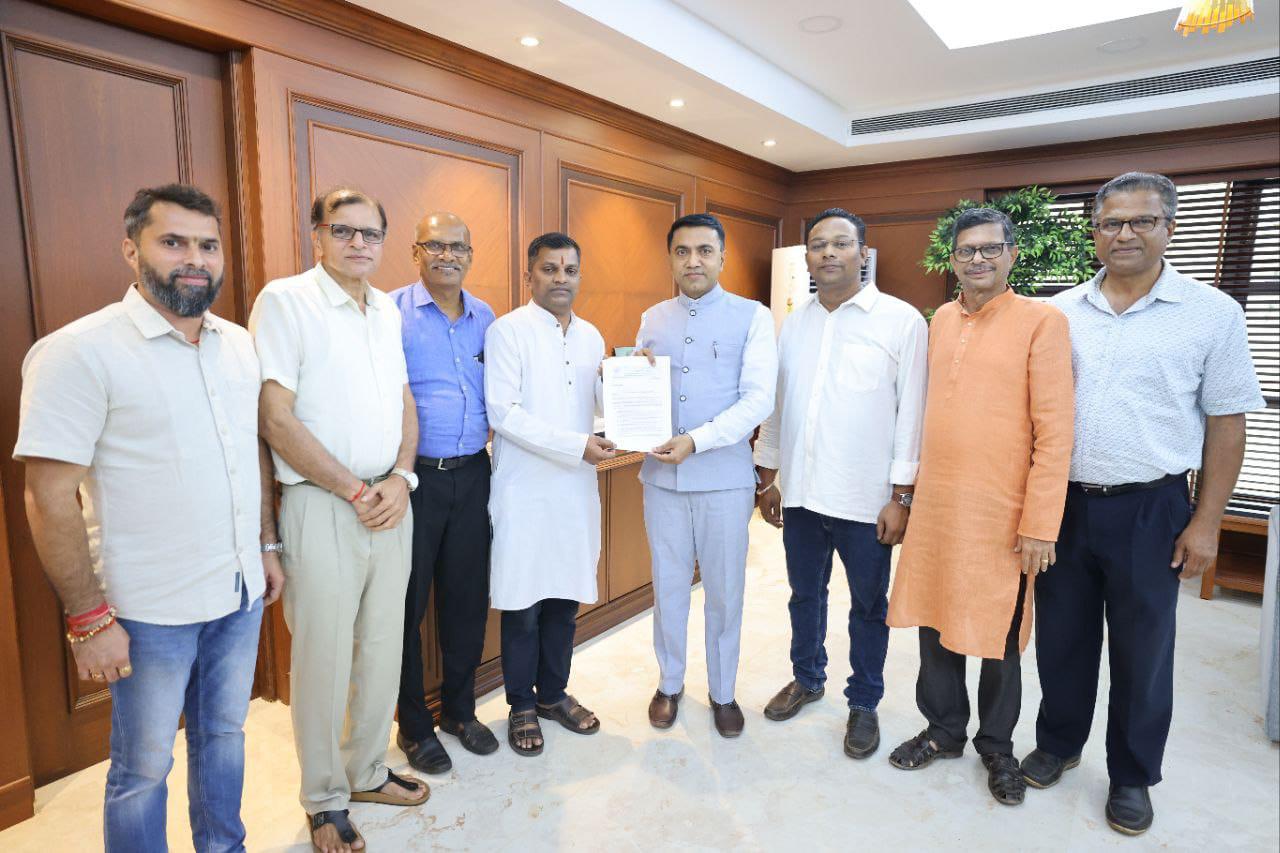Assure Proposal to Centre Under Article 252! : Surajya Abhiyan, an initiative of the Hindu Janajagruti Samiti, has taken a critical step toward addressing the escalating crisis of online gambling and real-money gaming (RMG) in India. Amid a surge in youth suicides, digital fraud, addiction, and economic exploitation, the Abhiyan has demanded a central law to ban and regulate online gambling a hidden menace masked as “fantasy gaming.”
National Law is the Need of the Hour : India is currently facing a digital epidemic. Online betting and gambling apps, many operating under the guise of “fantasy sports,” are destroying families, exploiting youth, and facilitating black money operations. Although a few states have attempted regulation, these efforts have proven ineffective due to legal loopholes and the constant rebranding of such apps. Under Article 252 of the Indian Constitution, Parliament can enact a national law on a subject in the State List if two or more states pass a resolution requesting it. Surajya Abhiyan has urged state governments to take this constitutional route and two major states have now responded.
Encouraging Support from Two Key States : In Chhattisgarh, a delegation of Surajya Abhiyan representatives including Shri Sunil Ghanwat, Shri Ranjit Savarkar, and others met Hon. Chief Minister Shri Vishnudev Sai, who assured them that the proposal under Article 252 would be forwarded to the Central Government. In Goa, representatives including Shri Rajendra Desai, Shri Narayan Nadkarni, and their team met Hon. Chief Minister Dr. Pramod Sawant, who expressed his full support and immediately instructed officials to initiate the proposal process.
Alarming Statistics and Social Fallout !
In Goa, a study conducted by Goa Medical College in 2023 revealed that 8% of medical students exhibited signs of online gaming addiction. According to the Goa State Commission for Protection of Child Rights, around 20% of adolescents are affected by gambling behaviour. More than 45% of adult men reportedly engaged in gambling in the past year, significantly impacting family life and work productivity. In June 2025, a 19-year-old youth in Ponda died by suicide after incurring heavy losses through online gambling. The state’s Cyber Crime Cell blocked 672 illegal websites and 936 mobile phones in just 10 months. Yet, new platforms continue to emerge. Between 2019 and 2025, Goa registered 44 gambling-related cases.
In Chhattisgarh, the suicide of 21-year-old Vaibhav Sahu in 2025 after losing ₹35,000 in online betting shocked the community. In July 2025, Khairagarh police uncovered a ₹20 crore online betting racket operated from Nagpur. The state has registered 444 cases related to online gambling, made over 1,000 arrests, and seized ₹2.20 crore, with 77 of these cases linked to the infamous Mahadev App. During the IPL season, daily betting transactions worth ₹8 to ₹10 lakh were exposed. Platforms like Dream11, which promote themselves as “fantasy sports,” are essentially legalized gambling operations. The probability of winning on such apps is as low as 0.00001%, rendering user success virtually impossible and resulting in massive financial exploitation.
Staggering Financial Impact and Legal Loopholes
According to government estimates, over ₹55,000 crore in GST dues have been demanded from online gambling companies. Dream11 alone owes ₹25,000 crore in unpaid taxes. As of 2025, over 50 crore Indians were active on online real-money gaming platforms. A majority of these platforms are controlled by foreign companies, raising concerns over money laundering, capital flight, and national security.
Why Central Legislation is the Only Effective Solution
So far, only Assam, Telangana, Andhra Pradesh, and Tamil Nadu have implemented state-level laws to regulate online gambling. However, Tamil Nadu’s law has already been legally challenged, exposing the limitations and vulnerability of state-level efforts. Under Article 252, if two or more states pass a resolution, the Parliament is empowered to legislate on such matters. This was the very mechanism used for implementing the GST law nationwide. With Goa and Chhattisgarh now taking the lead, the constitutional path for national regulation is open.
Surajya Abhiyan’s Appeal to the Nation
Surajya Abhiyan appeals to all state governments, social reformers, and concerned citizens to support this demand for a central law to regulate and ban online gambling. This is not merely a matter of legal reform, but a question of youth safety, economic justice, and social stability. This is not just about gaming it is about saving homes, protecting lives, and preserving the soul of our nation. India must act decisively before this digital gambling epidemic spirals beyond control.










